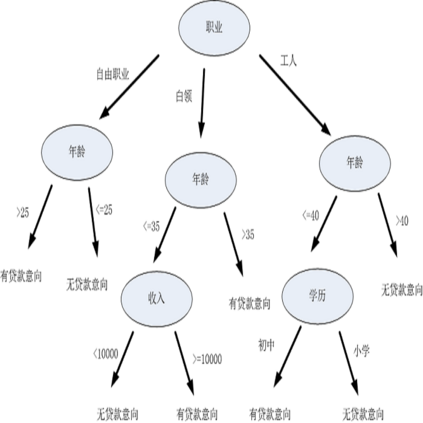Increasing the penetration of variable generation has a substantial effect on the operational reliability of power systems. The higher level of uncertainty that stems from this variability makes it more difficult to determine whether a given operating condition will be secure or insecure. Data-driven techniques provide a promising way to identify security rules that can be embedded in economic dispatch model to keep power system operating states secure. This paper proposes using a sparse weighted oblique decision tree to learn accurate, understandable, and embeddable security rules that are linear and can be extracted as sparse matrices using a recursive algorithm. These matrices can then be easily embedded as security constraints in power system economic dispatch calculations using the Big-M method. Tests on several large datasets with high renewable energy penetration demonstrate the effectiveness of the proposed method. In particular, the sparse weighted oblique decision tree outperforms the state-of-art weighted oblique decision tree while keeping the security rules simple. When embedded in the economic dispatch, these rules significantly increase the percentage of secure states and reduce the average solution time.
翻译:变量生成的渗透率的提高对电源系统的运行可靠性产生了很大影响。由于这种变异性造成的不确定性程度较高,因此更难以确定特定操作条件是否安全或不安全。数据驱动技术为确定安全规则提供了一个有希望的方法,这些安全规则可以嵌入经济发送模式,以保持电源系统运行状态的安全。本文提议使用稀薄的斜斜度决策树学习准确、可理解和嵌入的安全规则,这些规则是线性的,可以使用循环算法作为稀薄的矩阵提取。这些矩阵可以很容易地嵌入,因为使用大M方法对电力系统经济发送进行计算时存在安全限制。对高可再生能源渗透度的若干大数据集进行的测试证明了拟议方法的有效性。特别是,稀薄的倾斜度决策树在保持安全规则简便的同时,超越了最先进的加权斜度决策树。在经济发送时,这些规则会大大增加安全状态的百分比,并缩短平均解决时间。


